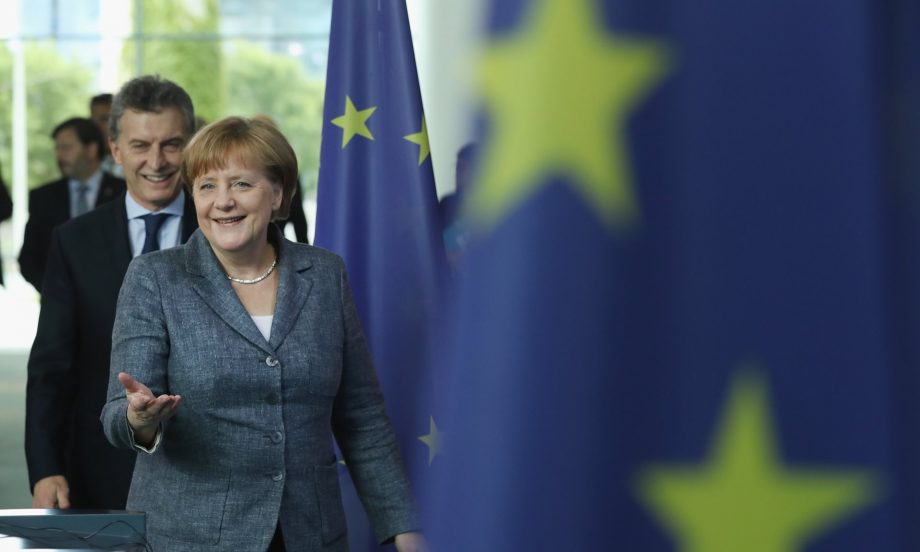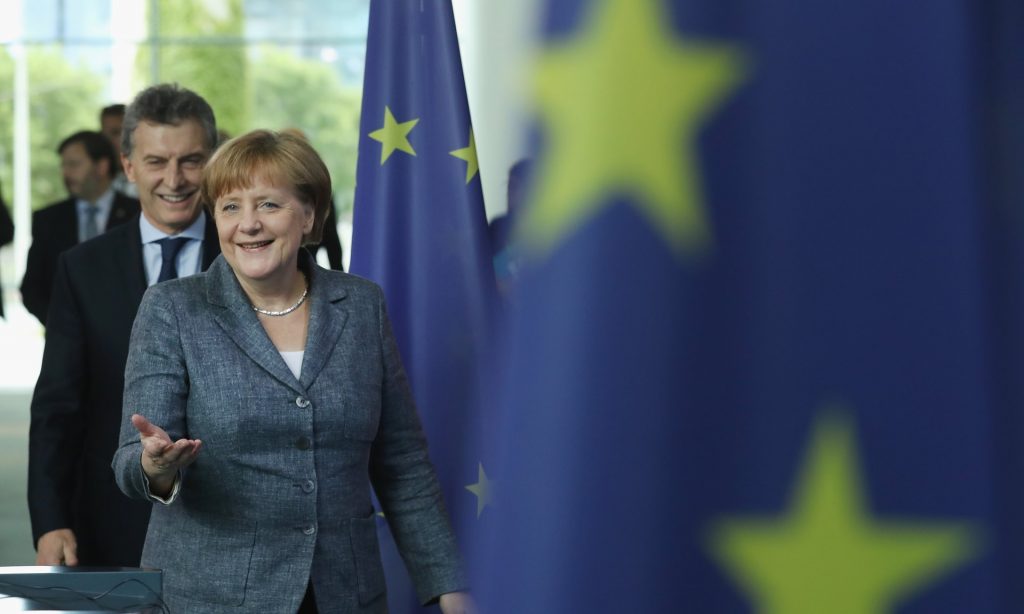German Chancellor Angela Merkel will quit as head of her Christian Democratic party after almost two decades, a person familiar with the matter said, a dramatic sign of her waning authority that will raise questions about her staying power as chancellor.

The chancellor told a leadership meeting of her Christian Democratic Union on Monday that she won’t run again as party chairwoman at a convention in December, according to the person, who asked not to be identified because the meeting was closed.
Contenders
Possible contenders include Health Minister Jens Spahn, who has publicly criticized her open-doors refugee policy and is championed by the CDU’s social conservatives; Ralph Brinkhaus, a fiscal hawk who unexpectedly ousted Merkel’s longtime parliamentary caucus leader; and Annegret Kramp-Karrenbauer, her hand-picked party general secretary who’s often cited as her most likely successor.
Others include two state premiers Armin Laschet and Daniel Guenther, who carry weight after recently leading the CDU to victory in regional elections.
Yet the potential for change in Germany is hemmed in by the country’s constitution and relatively strong political center.
“Even if Merkel were to be replaced and/or if a new government were to take power in Berlin, with or without new elections, it would not make a major difference once the dust has settled,” Holger Schmieding, chief economist at Berenberg, said in a note. “Any conceivable coalition in Berlin would still be dominated by the mainstream parties CDU/CSU, SPD, Greens and the smaller Liberals.”

